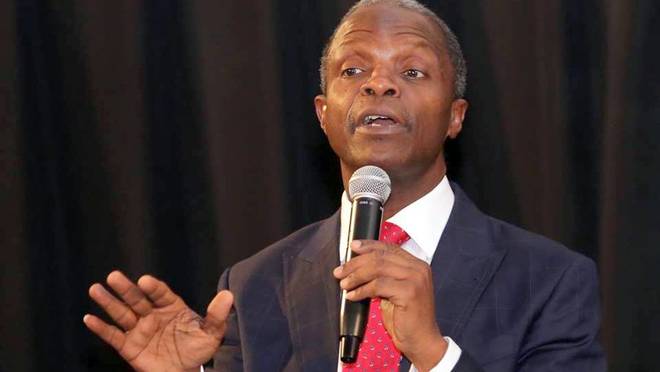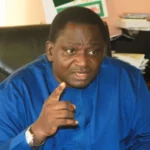Vice President Yemi Osinbajo on Monday said that the presidency was closely working with the National Assembly for the quick passage of the Petroleum Industry Governance Bill (PIGB).
Osinbajo said this during his keynote address at the 18th international HSE Biennial conference, organised by the Department of Petroleum Resources (DPR) in Lagos.
According to him, “ we are working closely with the National Assembly to ensure its timely passage.’’
He said that the reforms proposed in the PIGB “reflects our collective desire to entrench transparency and sustainability of oil and gas operations in Nigeria to enable the country finally to realise the full potential of her hydrocarbon resources’’.
.
He said: “I am pleased to bring you the warm greetings and felicitations of President Muhammadu Buhari on this occasion of the opening ceremony of the 18th International Health Safety and Environment (HSE) Biennial Conference.
“It is noteworthy that the theme of the conference, which is centred around sustainability, dovetails seamlessly with this administration’s vision and policy for the Oil and Gas Industry as a vehicle for driving the industrialization and growth of the Nigerian economy in a transparent, responsible and sustainable manner.
“ As a gathering of all stakeholders in the oil and gas industry, I am confident that your deliberations will yield important policies and ideas that will guide government in the formulation of policies for achieving sustainable development of our oil and gas resources.
“`It will also serve as a model for our other extractive industries that are not yet as mature,’’he said.
The Vice President said that no discussion about the future of the Oil and Gas could be divorced from the Petroleum Industry Bill (PIB) which represents the most ambitious and comprehensive reform in decades of the oil and gas industry in Nigeria.
Osinbajo noted that though varied reactions had trailed Mr President’s recent decision to return the Petroleum Industry Governance Bill (PIGB) to the National Assembly for slight amendments.
He, however, noted that resolving the security challenge in the Niger Delta remained on the front burner of this administration “as we seek to create a peaceful business climate that will attract investors and bring massive development to the oil producing communities”.
He said that government was sensitive to the genuine agitations of the host communities for greater participation in and control of oil and gas resources.
The Vice President noted that the law and order element to the problem had to be tackled headlong to allow for a peaceful business environment.
“The proposals in the host community bill currently undergoing review represent a paradigm shift in the relationship between oil and gas operators and their host communities.
“And the government in collaboration with state government and other stakeholders is fully committed to comprehensive reforms that empower the communities and move them from stakeholders to actual shareholders and partners in the oil and gas business.
“This will result in the formulation of a comprehensive livelihood strategy and development plan for the Niger Delta to complement the efforts of the various interventions by the Federal Government though the Niger Delta Ministry (NDDC) and the amnesty programme.
“The Federal Government’s commitment to the ease of doing business was reflected in the Executive Order 1 signed on May 18, 2017.
“The order had five main planks including: Transparency; Default Approvals; One Government; Port Operations and Entry Experience of travellers and visitors. As the mainstay of the Nigerian Economy, there is a dire need for ease of doing business in the oil and gas sector.
“The current regime of multiple and sometimes conflicting regulators/regulations is a serious drawback on the ease of doing business in the petroleum industry.
“While we continue to seek to resolve these conflicts, using the instrument of law, I wish to remind the various agencies and ministries of their primary responsibility to promote efficient service delivery and serve as the engine room for driving the collective policy of “one government”.
“I therefore enjoin all the conflicting agencies to close ranks, fine-tune and improve cooperation and document their resolutions in binding MOUs that will ease the burden of over-regulation of the oil and gas sector,’’ he said.
Osinjo said: “I am also pleased to announce to this gathering of Environmental experts that the government has fully commenced the clean-up of impacted oil spill sites in the Niger Delta.
“This is a massive undertaking that reflects the government’s commitment to restoring livelihood in the Niger Delta and deserves the support of all Nigerians.’’
The vice president, however, appealed to the host communities to assume greater and more responsible stewardship of oil and gas infrastructure in their communities even as the government worked to incentivise their efforts through the host community bill. (NAN)

 Join Daily Trust WhatsApp Community For Quick Access To News and Happenings Around You.
Join Daily Trust WhatsApp Community For Quick Access To News and Happenings Around You.


